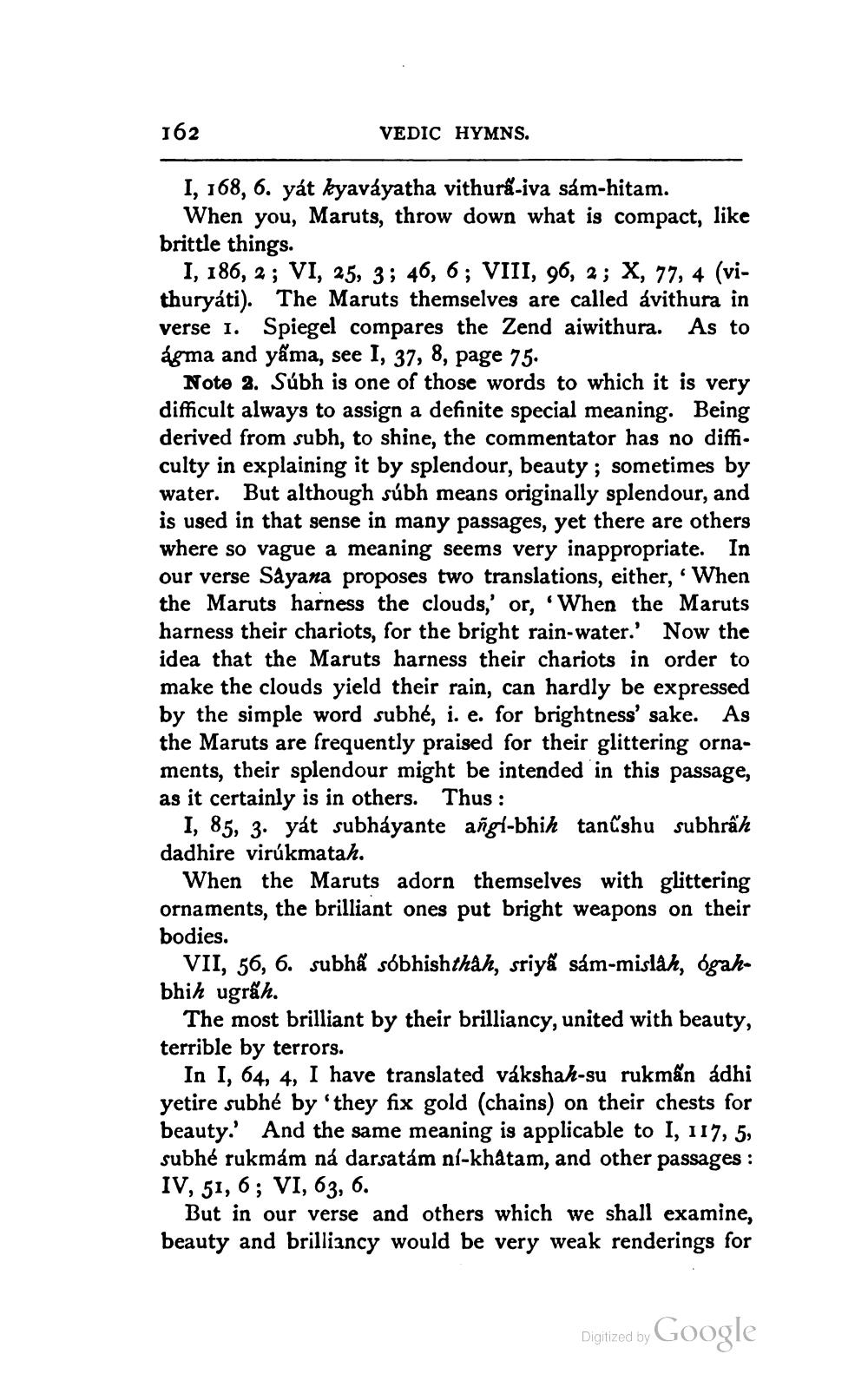________________
162
VEDIC HYMNS.
I, 168, 6. yát kyaváyatha vithurá-iva sám-hitam.
When you, Maruts, throw down what is compact, like brittle things.
I, 186, 2 ; VI, 25, 3; 46, 6; VIII, 96, 2; X, 77, 4 (vithuryati). The Maruts themselves are called ávithura in verse 1. Spiegel compares the Zend aiwithura. As to ágma and yấma, see I, 37, 8, page 75.
Note 2. Súbh is one of those words to which it is very difficult always to assign a definite special meaning. Being derived from subh, to shine, the commentator has no diffi. culty in explaining it by splendour, beauty ; sometimes by water. But although súbh means originally splendour, and is used in that sense in many passages, yet there are others where so vague a meaning seems very inappropriate. In our verse Sayana proposes two translations, either, When the Maruts harness the clouds,' or, When the Maruts harness their chariots, for the bright rain-water.' Now the idea that the Maruts harness their chariots in order to make the clouds yield their rain, can hardly be expressed by the simple word subhé, i. e. for brightness' sake. As the Maruts are frequently praised for their glittering ornaments, their splendour might be intended in this passage, as it certainly is in others. Thus :
I, 85, 3. yát subháyante añgl-bhih tanashu subhrah dadhire virúkmatah.
When the Maruts adorn themselves with glittering ornaments, the brilliant ones put bright weapons on their bodies.
VII, 56, 6. subhã sóbhishthåh, sriyã sám-mislåh, Ogahbhih ugråh.
The most brilliant by their brilliancy, united with beauty, terrible by terrors.
In I, 64, 4, I have translated vákshah-su rukmấn ádhi yetire subhé by 'they fix gold (chains) on their chests for beauty. And the same meaning is applicable to I, 117, 5, subhé rukmám na darsatám ní-khatam, and other passages : IV, 51, 6; VI, 63, 6.
But in our verse and others which we shall examine, beauty and brilliancy would be very weak renderings for
Digitized by
Digitized by Google




